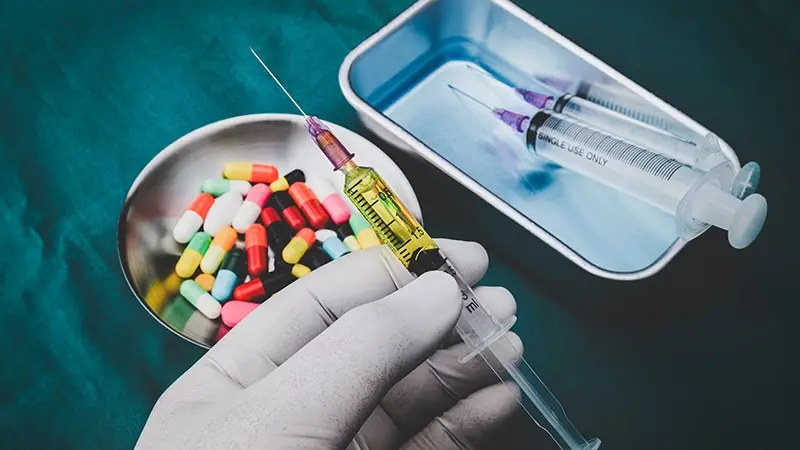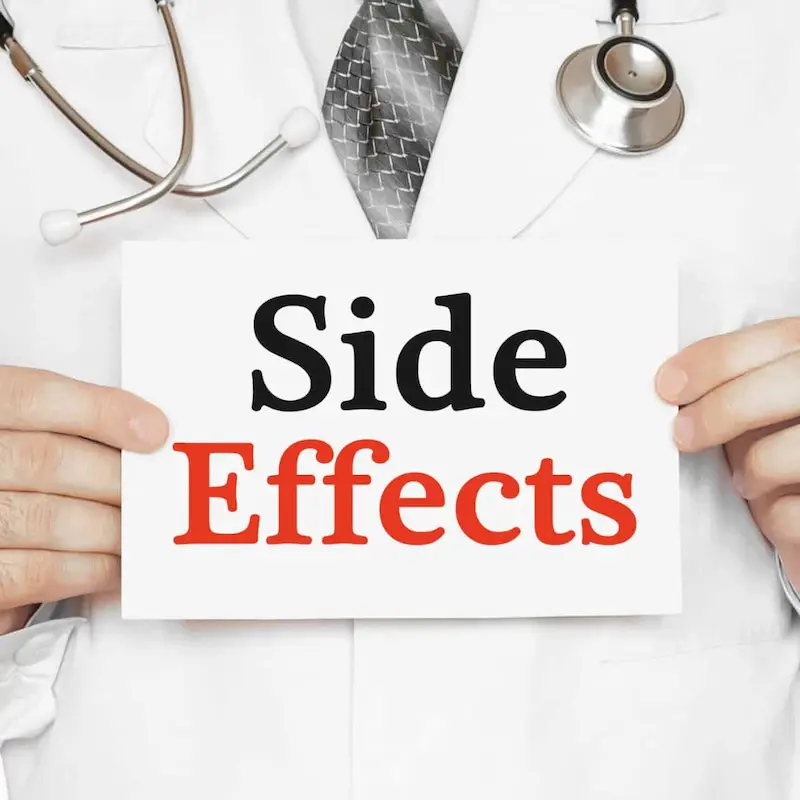Steroids have become a controversial subject in bodybuilding, drawing a fine line between enhancing performance and breaking the law. Bodybuilders and athletes sometimes turn to anabolic steroids, synthetic substances similar to the male hormone testosterone, to increase muscle mass and improve athletic performance. However, the use of these substances is subject to strict regulations. Various countries have laws that classify anabolic steroids as controlled substances, making it illegal to possess, distribute, or use them without a prescription.
The World Anti-Doping Agency (WADA) plays a significant role in the oversight of legal aspects of steroids use in sports, including bodybuilding. WADA’s guidelines and the Anti-Doping Code prohibit the use of performance-enhancing drugs in competitions, with strict penalties for violations. Consequently, bodybuilders must navigate the complex legal landscape that governs the use of steroids and other performance-enhancing substances while maintaining compliance with sports regulations.
Quick Summary
- Anabolic steroids are subject to legal controls and are banned in sports by agencies like WADA.
- Possessing, distributing, or using steroids without a prescription is illegal in many countries.
- Bodybuilders must comply with doping regulations and focus on legal substances and safe supplements.
History and Legal Aspects of Steroids in Bodybuilding

The use of steroids in bodybuilding has a complex history intertwined with legality issues, doping concerns, and varying international laws.
From Athletes to Bodybuilders
Bodybuilding as a sport gained popularity in the mid-20th century, but it wasn’t long before anabolic steroids, initially developed for medical purposes, were being used by athletes to enhance performance. By the 1950s and 1960s, steroids had made their way into bodybuilding, leading to significant changes in the sport’s competitive landscape.
Legislation and Control
In the United States, the Anabolic Steroid Control Act of 1990 placed anabolic steroids into Schedule III of the Controlled Substances Act, making their non-prescribed use a federal crime. This was an attempt to clamp down on the rising non-medical use of these substances among athletes, including bodybuilders.
Doping and Sports Integrity
The World Anti-Doping Agency (WADA) was established in 1999 to protect athletes’ health and preserve the integrity of sports. Steroids are listed as a banned substance by WADA, and bodybuilders competing in sanctioned events are subject to drug testing. Those found using anabolic steroids face penalties including suspensions and permanent bans.
Legality Across the Globe
Internationally, the legality of anabolic steroids for sports, including bodybuilding, varies. In some countries, like the UK, steroids can be possessed for personal use, whereas in others, including the United States, possession without a prescription is illegal. Enforcement and restrictions differ widely, with some countries focusing more on trafficking and others on personal use.
References
- Anabolic Steroid Control Act of 1990, https://www.congress.gov/bill/101st-congress/house-bill/4658
- World Anti-Doping Agency, https://www.wada-ama.org/
The Science of Steroids and Bodybuilding

Anabolic steroids facilitate increased muscle mass by enhancing protein synthesis and modifying hormonal levels. They interact directly with androgen receptors, leading to several physiological effects that are significant in the context of bodybuilding.
How Anabolic Steroids Work
Anabolic steroids are synthetic variants of the male sex hormone testosterone. They bind to androgen receptors within cells, which activate genes responsible for protein synthesis and muscle growth. By mimicking testosterone, steroids enhance anabolic activity — the building of tissues, particularly muscle.
- Anabolic activity: Growth of muscle tissue
- Androgen receptor: A cellular docking site for testosterone
Muscle Growth and Protein Synthesis
Steroids increase muscle mass by boosting protein synthesis, the process in which cells construct proteins, the building blocks of muscle fiber. Moreover, they improve nitrogen retention, ensuring that the body remains in an anabolic state necessary for muscle creation.
- Protein synthesis: The assembly of amino acids into proteins
- Nitrogen retention: Keeping a positive balance of nitrogen, which contributes to anabolism
Hormonal Effects of Steroids
Apart from their anabolic effects, steroids also have androgenic properties, influencing male traits and reproductive functions. However, they can also lead to an imbalance of estrogen — the primary female sex hormone — potentially causing side effects.
- Androgenic: Pertains to male characteristics
- Estrogen: Female sex hormone that can be influenced by steroid use
Health Risks and Side Effects

This section examines the specific health risks and side effects associated with the use of steroids in bodybuilding, focusing on acute and chronic health conditions, mental health challenges, and the potential for substance abuse.
Acute and Chronic Health Conditions
The use of anabolic steroids can lead to a variety of serious health conditions. Liver damage is a well-documented consequence, with conditions such as hepatitis and tumors occurring in response to steroid abuse. Heart problems including hypertension, which can cause heart attacks, are also severe risks. Kidney damage and alterations in cholesterol levels can further exacerbate cardiovascular issues. Infertility and gynecomastia, the development of breast tissue in men, are additional risks with long-term steroid use.
Mental Health Challenges
Steroids have been linked to significant mental health challenges. Mood disorders such as depression, aggression, and mood swings are commonly reported. Paranoia and anxiety can also result from steroid use, casting a long shadow on an individual’s mental well-being. The phenomenon known as ‘roid rage’ suggests a potential exacerbation of aggressive tendencies, which can have far-reaching impacts on personal relationships and behaviour in society.
Potential for Substance Abuse
The dependency on steroids can often lead to a broader substance abuse problem. The body’s natural testosterone suppression resulting from the artificial intake via steroids can make users dependent on these substances to maintain physical and psychological ‘normalcy.’ Consequently, the discontinuation of steroids without medical supervision can lead to severe withdrawal symptoms, fostering a cycle of dependency and, in some cases, leading to the abuse of other substances as a coping mechanism or to enhance performance further.
References
Safe Alternatives and Supplements

Seeking effective and legal alternatives in bodybuilding without the risks associated with steroids has led to the use of certain supplements and naturally derived substances. This section details nutritional supplements known for their safety profiles, highlights natural enhancers for performance, and underscores the importance of professional guidance from personal trainers and dieticians.
Nutritional Supplements
In the pursuit of building lean muscle, nutritional supplements including protein powders, creatine, and various workout supplements play a vital role. Protein powders such as whey and casein are widely recognized for their potential in muscle repair and growth. Creatine is another well-regarded supplement that can improve strength and increase lean muscle mass. The proper use of these substances, aligned with a balanced diet, contributes positively to bodybuilding outcomes.
- Protein Powders: For muscle repair and growth.
- Creatine: For increased strength and lean muscle mass.
The Role of Personal Trainers and Dieticians
Personal trainers and dieticians are instrumental in structuring a diet and supplement plan tailored to an individual’s bodybuilding goals. Their expertise ensures that the correct balance of diet, protein intake, and supplementation aligns with a training regimen.
- Professional Guidance:
- Customized supplement and diet plans.
References
- About Protein Powders: https://www.webmd.com/vitamins-and-supplements/features/protein-powder
- Creatine Information: https://www.mayoclinic.org/drugs-supplements-creatine/art-20347591
- Role of Personal Trainers: https://www.acefitness.org/resources/pros/expert-articles/5655/how-education-on-diet-and-nutrition-can-set-your-clients-up-for-success/
Performance Management and Recovery

Effective management of performance in bodybuilding is crucial for enhancing endurance, muscle growth, and recovery time. Recovery techniques, including sleep, are essential for maintaining energy levels and long-term health in the sport.
Training Programs and Endurance
Structured training programs are central to developing strength and power in bodybuilding. Regimens aimed at increasing muscle stamina should balance intensity with rest periods to optimize endurance. For instance, periodization in training, which involves varying the volume and intensity, can lead to significant improvements in one’s stamina and muscle performance.
Recovery Techniques and Sleep Importance
Effective recovery techniques are paramount to a bodybuilder’s regimen. Sleep, in particular, is a critical component, as it directly influences recovery time and energy levels. The importance of sleep for muscle recovery can be underlined by lists of sleep hygiene recommendations that include:
- Consistent Sleep Schedule: Maintaining a regular sleep pattern can enhance the quality of sleep.
- Sleep Environment: A quiet, dark, and cool environment can improve sleep efficiency.
Long-term Health and Fitness
Bodybuilding practices have long-term effects on health and fitness. Emphasizing recovery and responsible training can prevent chronic injuries and aid muscle growth over time. The use of fitness apps can offer tailored advice for tracking training progress and recovery needs, thereby promoting long-term health and endurance in bodybuilding.
Frequently Asked Questions

This section provides direct answers regarding the legalities and health considerations of anabolic steroid use for muscle building, the evolution of steroid laws, and the distinction between their legal and illegal usage.
What are the legal consequences of using anabolic steroids for muscle growth?
An individual found using anabolic steroids for muscle growth without a prescription can face criminal charges, which may include fines and incarceration. The severity of legal consequences varies based on the amount of the substance and the jurisdiction’s specific laws.
What types of substances are considered legal alternatives to steroids in bodybuilding?
Supplements such as creatine, whey protein, and branched-chain amino acids (BCAAs) are legal alternatives to steroids. These substances can help build muscle and improve performance without the legal risks associated with anabolic steroids.
What are the health risks and potential benefits associated with using steroids in bodybuilding?
Steroid use can lead to significant health risks including liver damage, increased heart disease risk, hormonal imbalances, and psychological effects. While steroids can increase muscle mass and strength, the health dangers they pose often outweigh the benefits.
How have steroid laws evolved on a state and national level in the United States?
Over the years, U.S. federal and state laws have tightened regulations on anabolic steroids. Prohibited under the Controlled Substances Act, steroids are classified as a Schedule III substance, and possession without a prescription is illegal. State laws may impose additional penalties.
What are the distinctions between legal and illegal steroid use in competitive sports?
Legal steroid use in sports often refers to the prescription use for medical reasons, while illegal use involves taking steroids for performance enhancement without a prescription, against the rules of sporting agencies. Anti-doping agencies are vigilant in monitoring illegal use.
What are the legal implications for possessing or distributing steroids without a prescription?
Possession of steroids without a valid prescription can result in criminal charges, with consequences increasing with the quantity in possession. Distributing steroids illegally is a more serious offense, potentially leading to higher fines and longer prison sentences.
References
- Controlled Substances Act: https://www.dea.gov/controlled-substances-act
- Mayo Clinic – Performance-enhancing drugs: https://www.mayoclinic.org/healthy-lifestyle/fitness/in-depth/performance-enhancing-drugs/art-20046134
- National Institute on Drug Abuse – Steroids and Other Appearance and Performance Enhancing Drugs (APEDs): https://www.drugabuse.gov/publications/drugfacts/anabolic-steroids
Dr. Grant Fourie, a specialist in male hormones, is based in Cape Town, South Africa. He provides comprehensive treatments for conditions related to low testosterone, such as erectile dysfunction, fatigue, and mood changes. His methods include hormone replacement therapy and other modern treatment options.
Contact me via email or phone to book personal appointment in my clinic: The Village Square, Cape Town - South Africa



